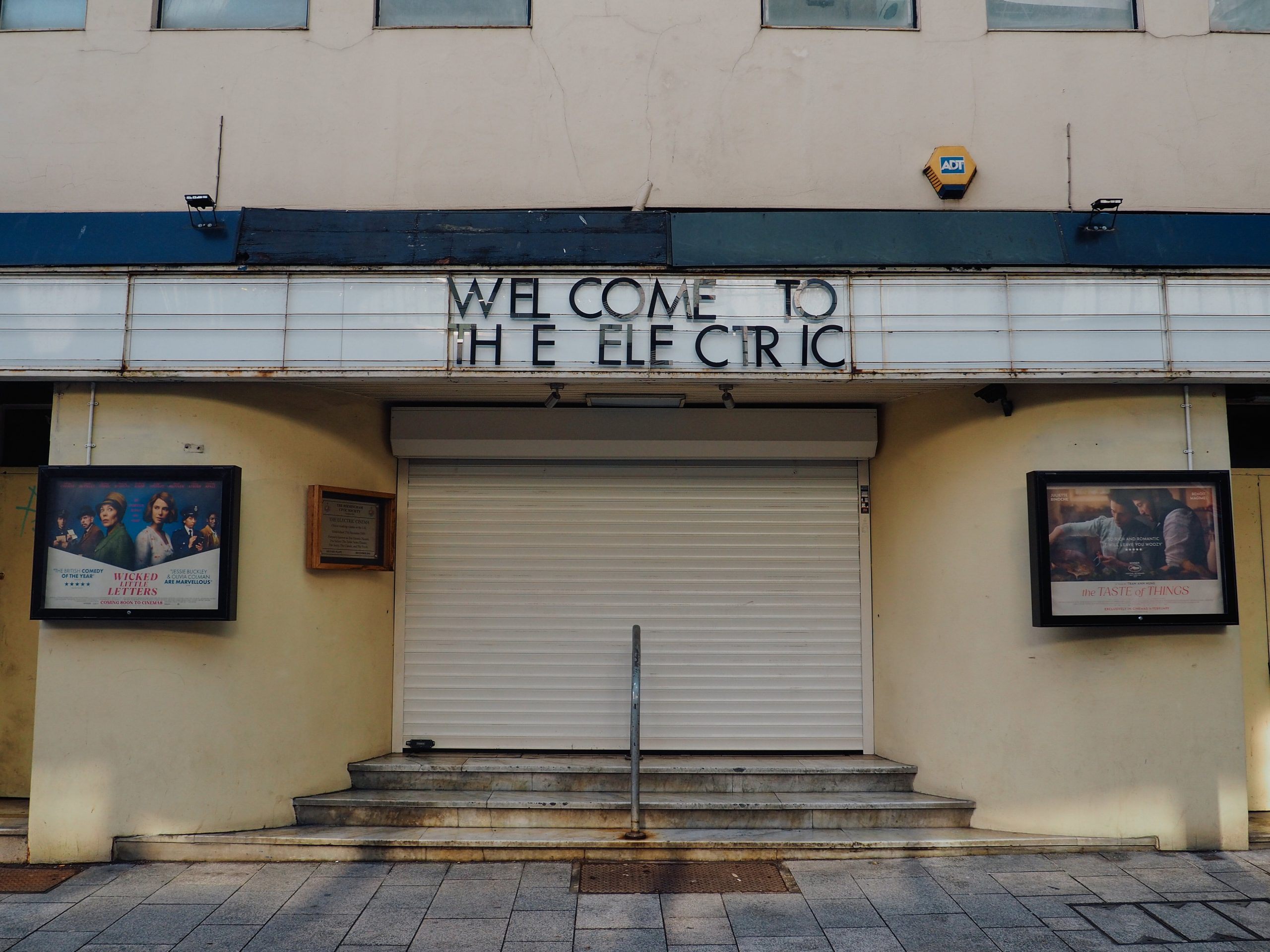
Film Critic Ilaria Sanzari writes on the closure of Birmingham’s beloved Electric Cinema – how it happened and what we can do to fight it
When you think of old films – of the classics – what comes to mind? The 1939 Wizard of Oz? The renowned Citizen Kane (1941)? Or the silent films of the influential Buster Keaton? The Electric Cinema, located here in the very heart of Birmingham, is even older – decades older, actually. The Electric is the oldest running cinema in the entire UK, or it was, until its potentially permanent closure just several days ago on the 29th of February.
The Electric is a testament to the history and growth that the film industry has experienced in this country and as a whole
Having opened in 1909, the 114-year-old cinema located on Station Street has “survived pretty much the entirety of the film industry”, remarked current owner Kevin Markwick. This Art Deco movie theatre, an impressive architectural work by the prominent architect Bertie Crewe, has shown a variety of different films in its time. From silent films with live orchestral accompaniment to adult films, cartoons and current digital releases, this cinema has accommodated every kind of filmgoer you can imagine. With an in-built bar and just two cosy screen rooms – including one that can screen 35mm film – the Electric has become an established location for both locals and tourists alike. Opening the same year as the UK’s first Cinematography Act, the Electric is a testament to the history and growth that the film industry has experienced in this country and as a whole.
Yet the cinema has suddenly updated its website to announce nothing other than its indefinite closure. With no prior warning or further explanation provided by the company or by Markwick, the reason for closure is up to speculation. However, what we do know is that the Electric’s 88-year lease was set to terminate at the end of March 2024 and there has been unofficial news that Station Street as a whole may be bulldozed to make way for – you guessed it – apartment blocks. A disheartening but somehow unsurprising replacement.

The implications of this are devastating for the historical, architectural and cultural value of Birmingham, which has already experienced quite a few crushing blows lately. The Birmingham City Council recently revealed detrimental budget reductions – where they will be cutting 100% of their grant funding to the cultural sector of the city within the next two years – in an attempt to counter their current bankruptcy. Not to mention that The Crown, located on the very same street as the Electric and famous for hosting Black Sabbath’s first gig, has also just had plans of restoration fall through. The cultural significance of this pub is as noteworthy as the Electric, where it has even been referred to as the “birthplace of metal [music]” by the founder of the Birmingham Music Archive, Jez Collins. To formally add the Electric to the list of recent losses would be a significant tragedy for a city that already lacks so much of its previous historical and cultural property.
To formally add the Electric to the list of recent losses would be a significant tragedy for a city that already lacks so much of its previous historical and cultural property
Station Street is also home to The Old Rep Theatre, The UK’s first purpose-built repertory theatre and a Grade II listed historical building. This kind of listed protection means that The Old Rep is currently not under the imminent threat of demolition like the other two, but the fact that Station Street is home to so many esteemed establishments has become particularly topical within the uproar over the Electric. Since the end of February, many have taken to social media to express dissatisfaction over the cinema’s closure and voice concern for the direction that Birmingham authorities are taking with the arts and culture of the city. Petitions for the entire street to be put under protection have even gained impressive traction, where Darren John’s petition to ‘Designate Birmingham’s Station Street a Historic, Cultural and Civic Asset’ has gained nearly 14,000 signatures just 4 days after its publication.
Such public outcry has been noticed, where Historic England has even commented on X (formerly known as Twitter) that they “have recently received applications for listing the Electric Cinema and are considering them carefully”. This notable acknowledgement from a government body, along with the collective upset communicated by the people of Birmingham and film lovers worldwide, brings reason to hope for the Electric’s future. And it wouldn’t be the first time that this cinema has made a comeback. Having closed back in 1932 for a refit, being closed and rebought in 2003 and then also making a return after its two-year shutdown during the COVID-19 pandemic, this movie theatre is no amateur when it comes to a crisis.
With our continuous protest and affectionate testimonies in favour of the Electric, there’s a chance that this recent closure can be just another pause in the impressively long life of this charming cinema.
If you liked this feature, check out these other articles from Redbrick Film:
I Love Wile E. Coyote | Redbrick Film
Review: Wicked Little Letters – A Double Perspective | Redbrick Film
Comments